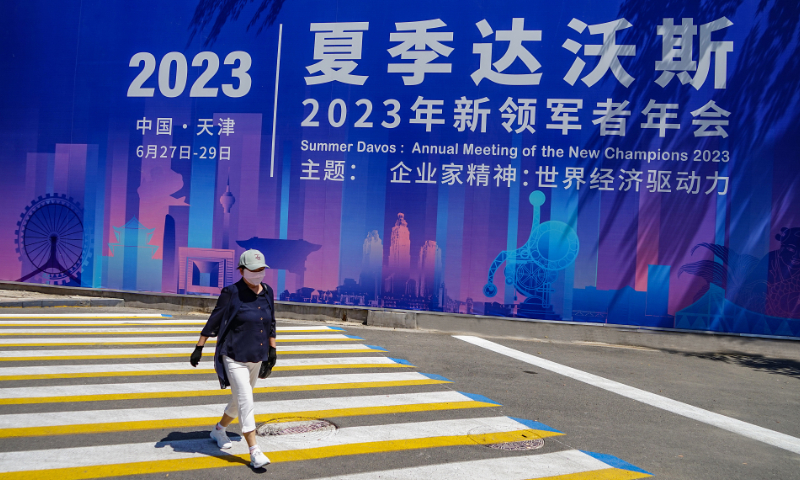The 14th Summer Davos Forum, which will be held from June 27 to 29 in Tianjin, has returned to the offline format after a three-year hiatus, generating great anticipation from various parties. Unlike the Winter Davos, known as the “weather vane of world economy,” the Summer Davos focuses more on “new leaders.” Participants primarily consist of globally-growing companies, earning it the title of the “blooming flower of technological innovation” in the summer. Innovation and inclusiveness are among its most prominent characteristics. Against the backdrop of concerns and uncertainties about the global economic outlook, as well as geopolitical tensions eroding the ground for cooperation, the new wind brought by the Summer Davos Forum will help dispel the gloom and provide a clearer direction for global development.
The theme of this year’s Summer Davos Forum is “Entrepreneurship: The Driving Force of the World Economy.” It continues the spirit of “seeking innovation” while emphasizing the importance of igniting entrepreneurial spirit and vitality of enterprises as the main agents of innovation in times of transformation. This theme is both targeted and pragmatic. Under the influence of various uncertain factors, such as geopolitical frictions, certain countries are pursuing “decoupling,” and the willingness and capability of transnational enterprises, especially high-tech companies, to innovate have been somewhat hindered, impacting the overall temperature of the world economy to certain degree. The entrepreneurial spirit and the power of innovation are needed now more than ever before.
Via the Summer Davos, China, with a firm stance of opening-up, has once again sent a call for win-win cooperation to the world, triggering a tremendous resonance. Following China’s announcement of hosting this forum, entrepreneurs from various countries eagerly signed up. Currently, more than 1,500 political, business, and academic elites from nearly 100 countries and regions worldwide have confirmed their attendance. Among them, the prime ministers of Barbados, Mongolia, New Zealand, and Vietnam will attend the forum and make official visits to China, while Saudi Arabia has sent one of its largest official delegations. Regardless of how much attention the Western media has focused on conflict, confrontation, and risks in recent years, the mainstream aspiration of the international community to seek economic cooperation opportunities will always be showcased through various platforms.
The “de-risking” rhetoric has become so popular in the West that it has created a vicious circle of thinking: The more one faces geopolitical turmoil, the more they want to “de-risk;” however, the more one is determined to “de-risk”, the more they prioritize competition and confrontation over development, ultimately exacerbating risks. Even multinational corporations have become a barometer of international competition rather than a core element of economic growth, which is not desirable. A simple truth is that without development, how can security be guaranteed? Only through cooperation and development, by resolving conflicts in development, and consolidating security through development, can the world truly “de-risk.” In this process, sticking to the entrepreneurial spirit of innovation, cooperation, and responsibility, and constantly working together to make the pie bigger, is the fundamental way to resolve risks.
Since the beginning of this year, China has hosted several important forums, including the China Development Forum, the Boao Forum for Asia Annual Conference, and the Tianjin Summer Davos Forum. Each of these multilateral events has been lively and popular, not only showing the world sees great potential in the Chinese market and development opportunities, but also indicating the more tense the international political atmosphere becomes, the greater the motivation to seek cooperation. China’s development and security concepts emit great attraction, driving China and the world to advance toward each other. Therefore, no matter how some Western media and politicians badmouth China, enterprises that genuinely participate in economic activities still choose to embrace China, and cooperation with China has become a pragmatic choice for many Western countries.
The more chaotic the world becomes, the more important it is to fully utilize entrepreneurial spirit, strengthen mutually beneficial cooperation, and work together toward a better future. The International Monetary Fund recently warned that growing geopolitical fragmentation around the world could cut global output by two percent over the long run and in general, a fragmented world is likely to be a poorer one. In this context, the offline communication opportunities provided by this year’s Summer Davos Forum are particularly valuable, and China’s full support and careful organization also make it more connected with the world.
(Global Times)




